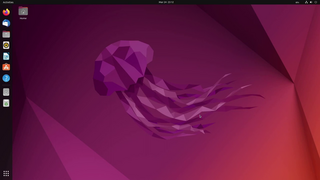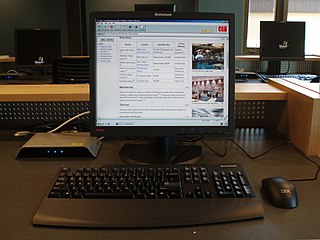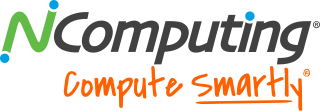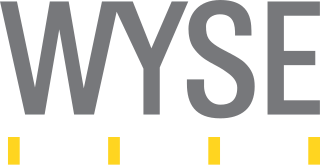This article needs additional citations for verification .(September 2007) |
Levanta (previously Linuxcare ) was a company based in San Mateo, California, United States, that created products for Linux management and data virtualization.
This article needs additional citations for verification .(September 2007) |
Levanta (previously Linuxcare ) was a company based in San Mateo, California, United States, that created products for Linux management and data virtualization.
Linuxcare was founded in San Francisco in 1998 by Dave Sifry, Arthur Tyde and Dave LaDuke. The company's initial goal was to be "the 800 number for Linux" and operate 24 hours a day. In the late 1990s, Linux was slowly gaining in popularity as both a desktop and server operating system. A common complaint was that Linux was inappropriate in business environments because obtaining support for Linux involved newsgroups, mailing lists, and websites operated by volunteers. Linuxcare intended to hire some of the disparate Linux experts and get them working together to provide reliable support, for which individuals and businesses would pay.
When Dell started to ship desktop computers with Red Hat Linux pre-installed in 1999, they bundled a coupon that allowed a certain number of free support calls to Linuxcare.
Several of the people that Linuxcare eventually hired were developers of well-known open source software projects:
These experts were allowed to use company time to develop their projects, and were expected to help with technical support in their areas of expertise.
They also hired a number of people from the open source support community including the Linux Gazette "Answer Guy" (Jim Dennis).
Linuxcare had four divisions: Linuxcare Labs that tested and certified hardware systems for Linux compatibility, Linuxcare University, which provided training, Professional Services which provided consultants to other companies and Research and Development that concentrated on enhancing open source software.
Some of their early training engagements included courses presented to customer technical support and sales engineering staff for SGI, Motorola Computer Products, and others. The training materials were primarily focused around LPI topics and certification (systems administration). Linuxcare was a significant support of the early LPI work and former Linuxcare employees (including Jim Lacey, current president and CEO of LPI who was in charge of Linuxcare University).
In December 1999, Linuxcare acquired Ottawa-based consulting company The Puffin Group and the Italian company Prosa. Linuxcare was preparing for an initial public offering in early 2000, until it fired its CEO Fernand Sarrat and CIO Doug Nassaur. Shortly after, around 33% of the company was laid off. In January 2001, Turbolinux and Linuxcare began discussing a merger, but it was called off in May 2001.
Following the withdrawal of its IPO registration statement, Linuxcare changed direction and began developing Linux-based software. Over the next several years, the company became much smaller, replaced most of its staff and board, relocated to San Mateo, California, received new venture capital investments, and, in 2004, changed its name to Levanta (the name of its flagship software product). As Levanta, the company no longer provided Linux technical support.
Levanta changed from software to hardware product model and in 2005 introduced the Intrepid, the industry's first Linux management appliance, which permitted machine provisioning, change control and limited content management for multiple Linux distributions. The initial Intrepid M offering was followed by the high-availability Intrepid X model, which provided warm-failover capability. Finally the Intrepid M designation was changed to refer only to models using external NAS storage served by a NetApp filer; the model with its own internal storage was then redesignated Intrepid S. The last Intrepid release included monitoring capability for managed machines and the Intrepid itself plus a sophisticated policy engine that permitted on-the-fly rebooting or rebinding of managed machines to new ones from a reserved pool as dictated by policy rules.
Levanta laid off all employees and sold its intellectual property on March 31, 2008. [1]
The rights to the Linuxcare brand were repurchased in 2009, and the company has been reborn as Linuxcare LLC, based in San Francisco.

AIX is a series of proprietary Unix operating systems developed and sold by IBM for several of its computer platforms.

A Linux distribution is an operating system made from a software collection that includes the Linux kernel and, often, a package management system. Linux users usually obtain their operating system by downloading one of the Linux distributions, which are available for a wide variety of systems ranging from embedded devices and personal computers to powerful supercomputers.

In computer networking, a thin client is a simple (low-performance) computer that has been optimized for establishing a remote connection with a server-based computing environment. They are sometimes known as network computers, or in their simplest form as zero clients. The server does most of the work, which can include launching software programs, performing calculations, and storing data. This contrasts with a rich client or a conventional personal computer; the former is also intended for working in a client–server model but has significant local processing power, while the latter aims to perform its function mostly locally.
Lycoris was an American independent software distributor headquartered in Maple Valley, Washington. The company was founded in 2000 as Redmond Linux by Joseph Cheek, an entrepreneur who had previously worked for Linuxcare, with the intent to make free software easy enough for anyone to use. In late 2001 it merged with embedded systems company DeepLinux; the merged entity was named Redmond Linux Corporation. The company's first product was Redmond Linux Personal, an easy-to-use Linux desktop operating system.

The Linux Standard Base (LSB) was a joint project by several Linux distributions under the organizational structure of the Linux Foundation to standardize the software system structure, including the Filesystem Hierarchy Standard used in the Linux kernel. LSB was based on the POSIX specification, the Single UNIX Specification (SUS), and several other open standards, but extended them in certain areas.

MontaVista Software is a company that develops embedded Linux system software, development tools, and related software. Its products are made for other corporations developing embedded systems such as automotive electronics, communications equipment, mobile phones, and other electronic devices and infrastructure.
Eazel was an American software company operating from 1999 to 2001 in Palo Alto and then Mountain View, California. The company's flagship product is the Nautilus file manager for the GNOME desktop environment on Linux, which was immediately adopted and maintained by the free software movement. As the core of Eazel's business model, it is an early example of cloud storage services in the form of personal file storage, transparently and portably stored on the Internet. Renamed to Files, this application continues to be a centerpiece of the free Linux-based desktop environment.
Linux adoption is the adoption of Linux computer operating systems (OS) by households, nonprofit organizations, businesses, and governments.

SUSE Linux Enterprise is a Linux-based operating system developed by SUSE. It is available in two editions, suffixed with Server (SLES) for servers and mainframes, and Desktop (SLED) for workstations and desktop computers. Its major versions are released at an interval of 3–4 years, while minor versions are released about every 12 months. SUSE Linux Enterprise products receive more intense testing than the upstream openSUSE community product, with the intention that only mature, stable versions of the included components will make it through to the released enterprise product.
Caldera OpenLinux (COL) is a defunct Linux distribution. Caldera originally introduced it in 1997 based on the German LST Power Linux distribution, and then taken over and further developed by Caldera Systems since 1998. A successor to the Caldera Network Desktop put together by Caldera since 1995, OpenLinux was an early "business-oriented distribution" and foreshadowed the direction of developments that came to most other distributions and the Linux community generally.
Arthur Tyde is an American software entrepreneur and private investigator based in San Francisco and SE Asia. He has been an advocate for Open Source software since founding the first Linux Users Group in the San Francisco / Silicon Valley Area. . He graduated from Michigan State University with a BA in Telecommunications and Anthropology and was the author of many shoot-em-up style games for Atari consoles, the Commodore 64 and TI-99/4A home computers. Following graduation he jumped freight trains covering most of North America and Canada with Steven 'Bo' Keeley, famous maverick hobo adventurer and speculator.

Linuxcare is an American IT services company founded in San Francisco in 1998 by Dave Sifry, Arthur Tyde and Dave LaDuke. The company's initial goal was to be "the 800 number for Linux" and operate 24 hours a day. Due to the dot-com bubble of the early millennium years, this version of Linuxcare morphed into Levanta and eventually sold in 2008.

Linux is an open-source Unix-like operating system based on the Linux kernel, an operating system kernel first released on September 17, 1991, by Linus Torvalds. Linux is typically packaged as a Linux distribution.

CNR, or One-Click & Run, was a free one-click software delivery service that was created to make finding and installing Linux software easier. It assisted the user in finding and installing software on their computer, and sat dormant in the system tray when not in use.

NComputing is a desktop virtualization company that manufactures hardware and software to create virtual desktops which enable multiple users to simultaneously share a single operating system instance.

Phoronix Test Suite (PTS) is a free and open-source benchmark software for Linux and other operating systems which is developed by Michael Larabel and Matthew Tippett. The Phoronix Test Suite has been endorsed by sites such as Linux.com, LinuxPlanet, and Softpedia.

IGEL Technology is a German multinational software company best known for their "Next generation edge operating system" which is purpose-built for secure access to cloud workspaces such as Virtual Desktop Infrastructure (VDI) and/or Desktop as a Service.
BeyondTrust (formerly Symark) is an American company that develops, markets, and supports a family of privileged identity management / access management (PIM/PAM), privileged remote access, and vulnerability management products for UNIX, Linux, Windows and macOS operating systems.

Wyse Technology, often shortened to Wyse, was an independent American manufacturer of cloud computing systems. As of 2012, Wyse is a subsidiary of Dell. Wyse are best remembered for their video terminal line introduced in the 1980s, which competed with the market-leading Digital. They also had a successful line of IBM PC compatible workstations in the mid-to-late 1980s. But starting late in the decade, Wyse were outcompeted by companies such as eventual parent Dell. Current products include thin client hardware and software as well as desktop virtualization solutions. Other products include cloud software-supporting desktop computers, laptops, and mobile devices. Dell Cloud Client Computing is partnered with IT vendors such as Citrix, IBM, Microsoft, and VMware.
Software categories are groups of software. They allow software to be understood in terms of those categories, instead of the particularities of each package. Different classification schemes consider different aspects of software.